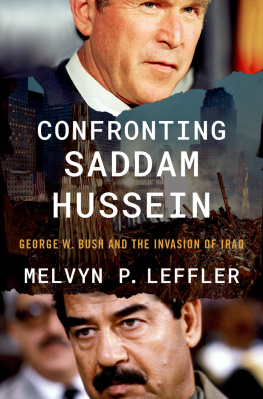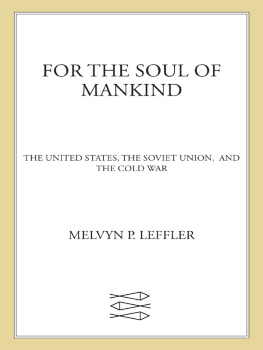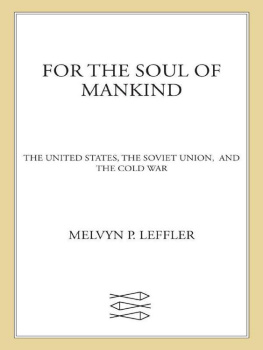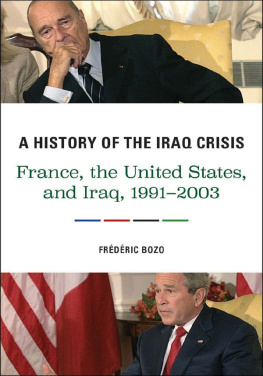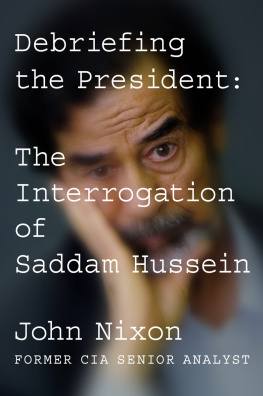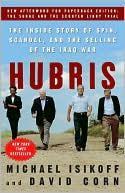Melvyn P. Leffler - Confronting Saddam Hussein: George W. Bush and the Invasion of Iraq
Here you can read online Melvyn P. Leffler - Confronting Saddam Hussein: George W. Bush and the Invasion of Iraq full text of the book (entire story) in english for free. Download pdf and epub, get meaning, cover and reviews about this ebook. City: New York, year: 2023, publisher: Oxford University Press, genre: History. Description of the work, (preface) as well as reviews are available. Best literature library LitArk.com created for fans of good reading and offers a wide selection of genres:
Romance novel
Science fiction
Adventure
Detective
Science
History
Home and family
Prose
Art
Politics
Computer
Non-fiction
Religion
Business
Children
Humor
Choose a favorite category and find really read worthwhile books. Enjoy immersion in the world of imagination, feel the emotions of the characters or learn something new for yourself, make an fascinating discovery.
- Book:Confronting Saddam Hussein: George W. Bush and the Invasion of Iraq
- Author:
- Publisher:Oxford University Press
- Genre:
- Year:2023
- City:New York
- Rating:3 / 5
- Favourites:Add to favourites
- Your mark:
Confronting Saddam Hussein: George W. Bush and the Invasion of Iraq: summary, description and annotation
We offer to read an annotation, description, summary or preface (depends on what the author of the book "Confronting Saddam Hussein: George W. Bush and the Invasion of Iraq" wrote himself). If you haven't found the necessary information about the book — write in the comments, we will try to find it.
Americas decision to go to war in Iraq in 2003 is arguably the most important foreign policy choice of the entire post-Cold War era. Nearly two decades after the event, it remains central to understanding current international politics and US foreign relations.
In Confronting Saddam Hussein, the eminent historian of US foreign policy Melvyn P. Leffler analyzes why the US chose war and who was most responsible for the decision. Employing a unique set of personal interviews with dozens of top officials and declassified American and British documents, Leffler vividly portrays the emotions and anxieties that shaped the thinking of the president after the shocking events of 9/11. He shows how fear, hubris, and power influenced Bushs approach to Saddam Husseins Iraq. At the core of Lefflers account is his compelling portrait of Saddam Hussein. Rather than stressing Bushs preoccupation with promoting freedom or democracy, Leffler emphasizes Husseins brutality, opportunism, and unpredictability and illuminates how the Iraqi dictators record of aggression and intransigence haunted the president and influenced his calculations. Bush was not eager for war, and the decision to invade Iraq was not a fait accompli. Yet the president was convinced
that only by practicing coercive diplomacy and threatening force could he alter Husseins defiance, a view shared by British Prime Minister Tony Blair and other leaders around the world, including Hans Blix, the chief UN inspector. Throughout, Leffler highlights the harrowing anxieties surrounding the decision-making process after the devastating attack on 9/11 and explains the roles of contingency, agency, rationality, and emotion. As the book unfolds, Bushs centrality becomes more and more evident, as does the bureaucratic dysfunctionality that contributed to the disastrous occupation of Iraq.
A compelling reassessment of George W. Bushs intervention in Iraq, Confronting Saddam Hussein provides a provocative reinterpretation of the most important international event of the 21st century.
Melvyn P. Leffler: author's other books
Who wrote Confronting Saddam Hussein: George W. Bush and the Invasion of Iraq? Find out the surname, the name of the author of the book and a list of all author's works by series.

